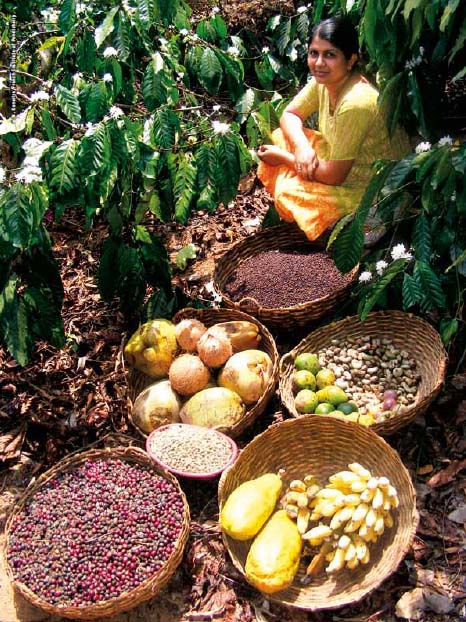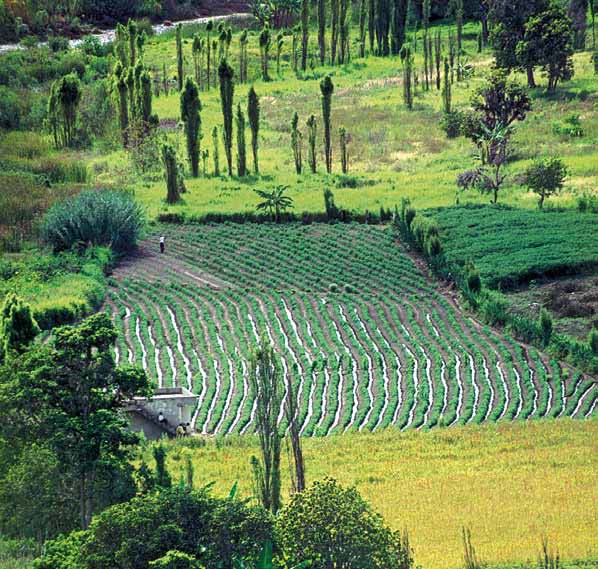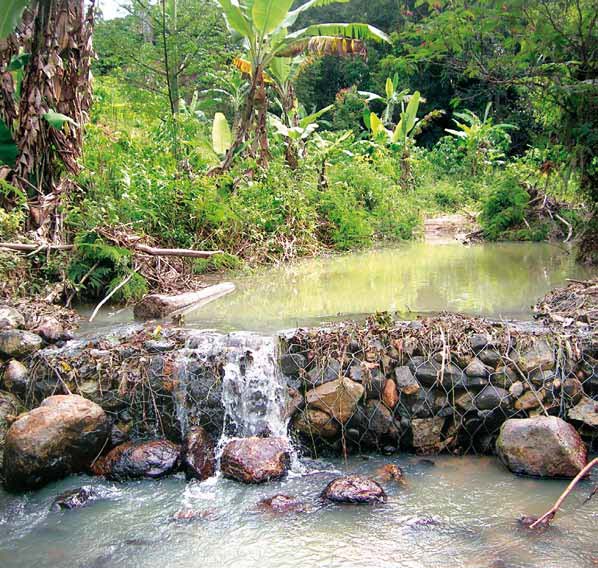 Changing climate, loss of native forests, disappearance of biodiversity, water shortages, desertification, the reduction of natural soil fertility — all add to the scenario of a world with increasingly complex environmental challenges.
Changing climate, loss of native forests, disappearance of biodiversity, water shortages, desertification, the reduction of natural soil fertility — all add to the scenario of a world with increasingly complex environmental challenges.
The concept of Payment for Ecosystem Services (PES) has emerged as a challenge to the all-too-prevalent tradition of taking the Earth’s natural resources for granted. PES highlights a global continuum, illustrating the relationship between our lifestyles, the demands associated with our production and consumption patterns, and the effects those demands have on close or distant ecosystems.
PES can be used as a benchmark by which policy-makers, investors, NGOs, landowners and local people who benefit from ecosystem services can evaluate their approaches and determine if they are supporting a sustainable model of development. In this case, sustainable would mean that it recognizes the right of people to guide their own development, seeks environmental integrity, enhances economic resilience, supports food security and embodies the principles of equity and justice.
Embracing PES starts with putting a monetary value on natural resources and developing market mechanisms to protect ecosystem services.
market mechanisms to protect ecosystem services.
The report has been organized into the following main chapters apart from several case studies from across the world and a section on viewpoints -
- The role of PES in agriculture
- Relevance of OECD agri-environmental measures for PES
- Opportunity and gaps in PES implementation and key areas for further investigation
- Cost-effective targeting of PES
- Social and cultural drivers behind the success of PES
- Landscape labelling approaches to PES: Bundling services, products and stewards
- Enabling conditions and complementary legislative tools
- PES within the context of Green Economy
The case study from India deals with geographic indications and landscape labeling in Kodagu district of Karnataka.

The case study presents how geographical indications and coffee certification schemes, or even a landscape labeling approach, could link sustainable management and environmental benefits of coffee agroforests with appropriate remuneration for producers through better access to markets and PES, and improve livelihoods for coffee farming communities, while conserving natural resources in a major coffee agroforest region located in a world hotspot for biodiversity.
The report suggests that the way forward will not be toward a single, simple pre-determined solution, but instead through a process of negotiation and social dialogue that raises understanding within the community of the critical role that PES can play in protecting the Earth’s natural resources and, in turn, future populations.
The report as a whole indicates how a functioning PES system has the potential to renew individuals’ shared sense of responsibility and involve them in supporting initiatives that can contribute to the collective preservation of our planet.
Download the report here -





 Payments_for_ecosystem_services_and_food_security_Food_and_Agriculture_Organisation_2011.pdf
Payments_for_ecosystem_services_and_food_security_Food_and_Agriculture_Organisation_2011.pdf







